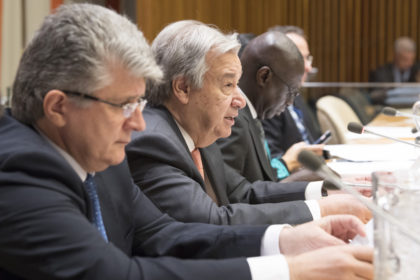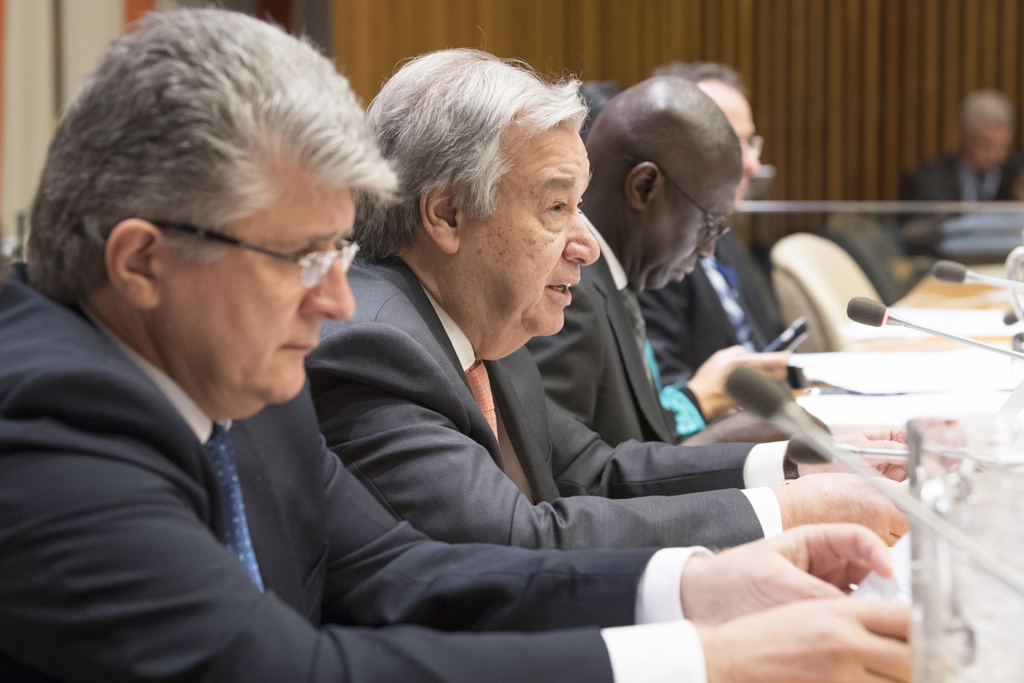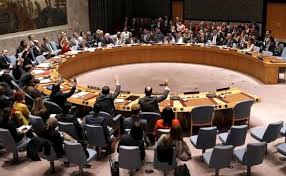 UN Secretary-General Antonio Guterres warned Monday against the creation in the Middle East of an “irreversible one-state reality” that is contrary to the solution advocated so far by the International community of two states, Israel and Palestine, living side by side.
UN Secretary-General Antonio Guterres warned Monday against the creation in the Middle East of an “irreversible one-state reality” that is contrary to the solution advocated so far by the International community of two states, Israel and Palestine, living side by side.
“The negative trends on the ground have the potential to create an irreversible one-state reality that is incompatible with realizing the legitimate national, historic and democratic aspirations of both Israelis and Palestinians,” said the UN chief at the opening of the 2018 session of the Committee on the Exercise of the Inalienable Rights of the Palestinian People.
The Committee was created by the UN General Assembly in 1975 to seek and end to the Israeli occupation and ensure the achievement of a two-state solution in the Middle East conflict.
“We must face today’s difficult reality,” he said, adding that after decades, “convergence and global consensus could be eroding, making effective concerted action more difficult to achieve”.
Guterres underlined the UN steadfast commitment and his own to supporting the parties in their efforts to make the two-State solution a reality. “There is no Plan B,” he insisted, “a two-State solution is the only way to achieve the inalienable rights of the Palestinian people and secure a sustainable solution to the conflict”.
He stressed however that “illegal” settlement expansion in the occupied West Bank, including East Jerusalem, is “a major obstacle to peace,” and that “It must be halted and reversed”.
Violence and incitement continue to fuel a climate of fear and mistrust, he said, noting that the humanitarian and economic situation in Gaza remains dire.
The UN Country Team in the Occupied Palestine Territory had predicted that unless concrete action is taken to improve basic services and infrastructure, Gaza will become unlivable by 2020, he recalled. “Yet Gaza remains squeezed by crippling closures and a state of constant humanitarian emergency”.
Two million Palestinians are struggling everyday with crumbling infrastructure, an electricity crisis, a lack of basic services, chronic unemployment and a paralyzed economy. All of this is taking place amid an unfolding environmental disaster, he warned.
The UN Chief also expressed extreme concern at the latest shortfall in UNRWA’s funding that will gravely impair the agency’s ability to deliver on its mandate and preserve critical services such as education and health care for Palestine Refugees, across the Occupied Palestinian Territory and in Jordan, Syria and Lebanon, as well.
The UN Chief also reiterated the importance of advancing Palestinian unity, saying “reconciliation is a key step in reaching the larger objective of a Palestinian State and lasting peace”.



